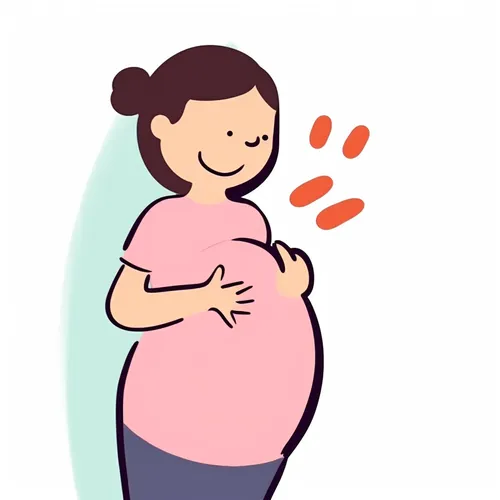Baby’s First Movements
Feeling your baby move for the first time is an exciting milestone in pregnancy. However, it can also be confusing trying to figure out when those first flutters might happen. The timing varies significantly between women.
The most important factor is the location of your placenta. The placenta attaches to your uterus early in pregnancy and acts as a cushion between your baby and your abdominal wall. Where it attaches is random and does not indicate the baby’s gender.
If your placenta is posterior (on the back wall of your uterus), there is no cushion between you and your baby. You will likely feel movements between 16-18 weeks. If your placenta is anterior (on the front wall), kicks and punches must travel through the cushion. You may not feel movement until 20-22 weeks. A lateral placenta (on the sides) may block sensations from that side at first.
At the start, movements feel like gentle popping sensations or bubbles. As your baby grows, kicks and rolls will become more distinct. Bear in mind that, just like us, babies have active and quiet periods when they sleep. Your baby will not be constantly on the move!
Every woman and every pregnancy is unique. Try not to worry if your experience does not match someone else’s timeline. Focus on your own sensations. When your baby is big and strong enough, you will feel their activity.
Some tips:
- Pay attention to flutters or bubbles, especially when you are relaxed. Movements can be easier to detect when lying down.
- Gently press your hands against different areas of your belly to see if you feel responding kicks.
- Notice patterns of active times, often after meals. Focus your attention during those windows.
- Stay tuned to your own body’s timeline, not comparisons with others. Each pregnancy is different.
What Do Early Movements Feel Like?
Many women describe their baby’s first movements as feeling like gently popping bubbles or butterfly flutters in the abdomen. The sensations are very subtle at first and can be easy to miss. Some say it reminds them of a soft tapping or twitching feeling inside. Others compare it to a gentle swirling or swooshing sensation in the belly.
In the beginning, fetal movement may be infrequent and sporadic. You may feel a flutter or two and then nothing for several hours or even days. This is completely normal in the early weeks of feeling motion. As your pregnancy progresses, your baby’s sleep/wake cycles will regulate more and you’ll notice more consistent activity during their wakeful periods.
Changes Around Week 28
When you reach 28 weeks pregnant, you should feel your baby’s movements every day. At this stage of fetal development, your baby is big and strong enough that you will notice kicks, wiggles, and rolls at regular intervals throughout the day.
Make sure to contact your midwife right away if you ever go a full day without feeling motion after 28 weeks. Though not all decreased movement indicates a problem, your care provider will likely want to do a non-stress test to check the baby’s wellbeing.
In those last few months, you may notice your baby is less active right before and during labour. This is because the body is focused on the hard work of delivery. As long as you felt normal movement leading up to this point, there is no need for concern.
Prod Your Belly
If you are ever worried that your baby is moving less than normal, here’s one tip you can try at home:
Gently prod different areas of your belly to see if you can elicit a response. Often a poke or press prompts the baby to kick back, confirming they are active in there but movements are just muted by your placenta position. This is reassuring feedback that all is well.
Of course, if prodding your belly does not bring about any reaction from your baby, contact your midwife right away. But in many cases, this simple technique offers quick proof that your little one is still kicking – you just can’t always feel it on your own yet.
Bonding Through Motion
Feeling your baby move is an amazing way to bond during pregnancy. While those first flutters are exciting, they are just a sneak peek at the wondrous world of kicks, rolls, and jabs to come. Sit back and enjoy the show as your little one grows big enough to make their presence unmistakably felt!
When you reach 28 weeks, you should feel movements daily. At this stage, contact your midwife if you ever go a full day without feeling your baby wriggle and kick. But in the early months, don’t stress if it takes longer than your friend’s pregnancy to detect those first amazing flutters. Your baby will make their presence known soon enough!
Photo credit; “Moving” by Anthony Cunningham for Zoom Baby
Zoom Baby is a leading supplier of Pregnancy Tests and Ovulation Test Kits





